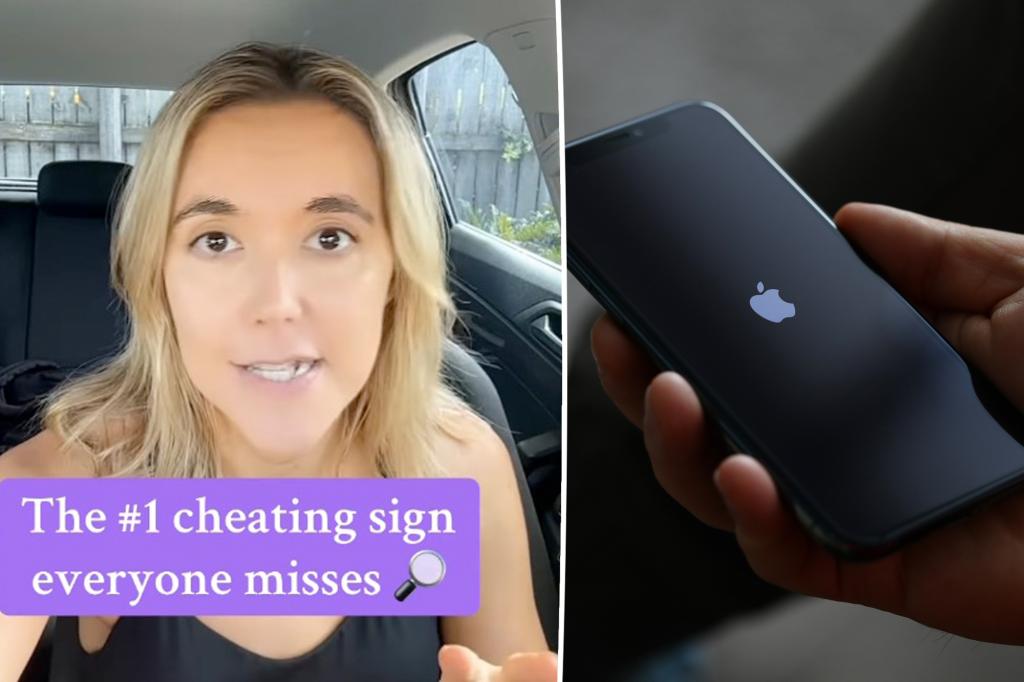The digital age has ushered in a new era of infidelity, with technology providing both the means and the cover for clandestine affairs. While traditional methods like hidden text messages and secret apps remain prevalent, a more innocuous tool is gaining traction among those seeking to deceive their partners: the unassuming Notes app. This seemingly benign application, pre-installed on iPhones, iPads, and MacBooks, has become an unlikely platform for covert communication. Its ubiquity and apparent harmlessness make it an ideal disguise for illicit exchanges, easily overlooked amidst the mundane notes and lists that populate most users’ devices. The method involves creating a shared note between two individuals, allowing them to communicate in real-time without raising suspicion. This deceptively simple tactic bypasses the usual scrutiny applied to text messages and call logs, making it a more discreet option for those engaging in extramarital affairs. As private investigator Cassie, director of Venus Investigations, explains, individuals engaged in deception are adept at repurposing technology for their own ends, turning seemingly innocuous tools into instruments of secrecy.
Identifying this particular form of digital infidelity requires a degree of tech-savvy. A key indicator of a shared note is the small person icon located next to the note’s title. However, this only becomes apparent if the suspecting partner has access to the other’s device. Furthermore, deleting the chat history within the shared note leaves no trace, making it an attractive option for those seeking to erase evidence of their indiscretions. The revelation of this tactic on social media platforms like TikTok has sparked a range of reactions, from disbelief and amusement to concern and outrage. Many express surprise at the ingenuity of this method, while others lament the lengths to which some individuals will go to conceal their infidelity. The ease and accessibility of the Notes app method highlights the ever-evolving landscape of digital deception, forcing individuals to remain vigilant and adaptable in their efforts to uncover the truth.
Beyond the Notes app, even seemingly mundane loyalty programs can inadvertently expose infidelity. In one of Cassie’s most compelling cases, a wife suspected her husband of cheating during his frequent trips to New South Wales, ostensibly to visit family. Initial investigations into joint bank accounts revealed transactions at Coles and Bunnings, but lacked specific location data, preventing confirmation of her suspicions. However, a crucial clue lay within their joint Flybuys account. This loyalty program, common in Australia, tracks purchases made at participating retailers, including Coles and Bunnings. Upon accessing the Flybuys app, the wife discovered that the store locations associated with her husband’s purchases were not in New South Wales, as claimed, but rather in a Queensland suburb – the residence of his ex-girlfriend. This seemingly innocuous rewards program, designed to offer discounts and track spending habits, inadvertently became a tool for uncovering deception, providing the concrete evidence needed to confirm the wife’s suspicions.
This case highlights the unexpected ways in which digital footprints can betray infidelity. Data collected by loyalty programs, while intended for marketing and personalized offers, can inadvertently reveal patterns of behavior that might otherwise remain hidden. The specific locations associated with purchases, in this instance, proved to be the crucial piece of the puzzle, connecting the husband to his ex-girlfriend’s neighborhood. The irony of the situation, as Cassie pointed out, is that the husband’s pursuit of a small discount through the Flybuys program ultimately led to a potentially costly divorce. This case serves as a cautionary tale, demonstrating how seemingly insignificant details can unravel elaborate deceptions in the digital age.
The proliferation of digital tools and platforms presents both opportunities and challenges in navigating the complexities of modern relationships. While technology can facilitate communication and connection, it also provides new avenues for secrecy and deception. The Notes app strategy, with its inherent inconspicuousness, exemplifies the evolving nature of infidelity in the digital age. The ease with which this everyday tool can be repurposed for clandestine communication underscores the need for vigilance and awareness in maintaining trust and transparency within relationships. Moreover, the Flybuys case demonstrates the unexpected ways in which digital footprints can betray infidelity, highlighting the potential for seemingly innocuous data to reveal hidden truths.
The digital breadcrumbs we leave behind in our daily lives, from online purchases to loyalty program transactions, can paint a surprisingly detailed picture of our activities and whereabouts. This information, while often collected for benign purposes, can be instrumental in uncovering deception when suspicions arise. The case of the cheating husband, exposed by his Flybuys account, serves as a stark reminder that in the digital age, even seemingly insignificant details can have significant consequences. The pursuit of a small discount, in this instance, led to the unraveling of a secret affair, highlighting the interconnectedness of our online and offline lives.
In conclusion, the digital age has transformed the landscape of relationships, presenting both new opportunities for connection and new challenges for maintaining trust. From the covert use of the Notes app to the unintended consequences of loyalty programs, technology has become an integral part of the narrative of infidelity. As individuals become increasingly reliant on digital tools and platforms, it is crucial to remain aware of the potential for misuse and deception. The cases highlighted above serve as cautionary tales, reminding us that in the digital age, secrets are rarely truly hidden, and even the most innocuous details can ultimately reveal the truth.


